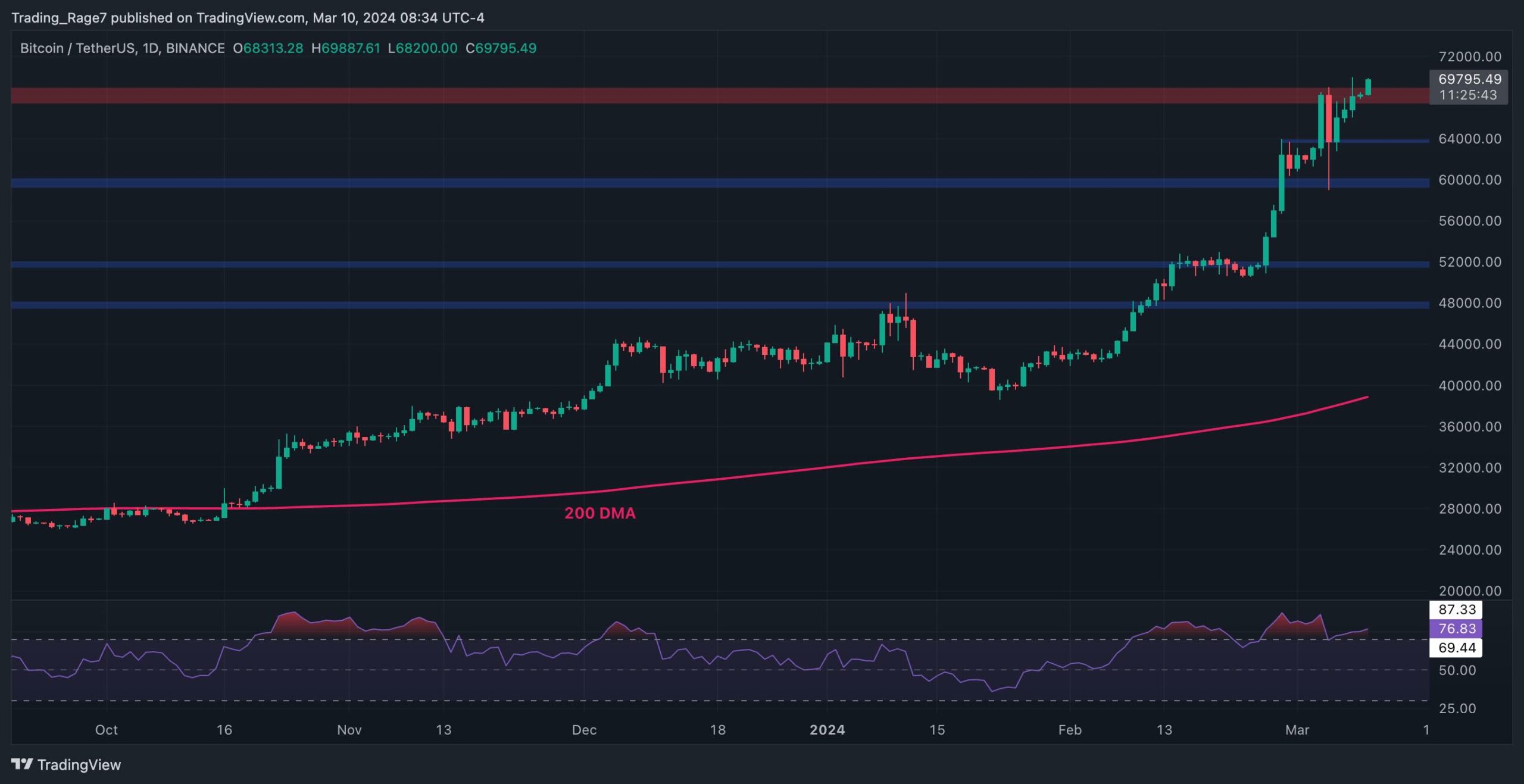EU Updates AMLR Rules For Anonymous Crypto Transactions
The European Union (EU) has updated its Anti-Money Laundering Regulation (AMLR) in a bid to combat money laundering and terrorism financing in the area. According to a recent post from Patrick Breyer, a member of the European Parliament, the new rules will apply to all financial institutions, including crypto-asset service providers (CASPs). Under the new [...] The post EU Updates AMLR Rules For Anonymous Crypto Transactions appeared first on Blockonomi.

The European Union (EU) has updated its Anti-Money Laundering Regulation (AMLR) in a bid to combat money laundering and terrorism financing in the area. According to a recent post from Patrick Breyer, a member of the European Parliament, the new rules will apply to all financial institutions, including crypto-asset service providers (CASPs).
Under the new law, anonymous crypto transactions over 3,000 euros will be banned in commercial transactions.
More EU Oversight Is Here!
The law targets transactions made by crypto exchanges and wallet providers, which are obliged to register with regulatory authorities across the EU. Under the updated law, anonymous crypto transactions over 3,000 euros will be banned in commercial transactions, and cash transactions over 10,000 euros will be completely banned in business transactions.
In addition, the new EU law prohibits CASPs from supporting or providing services to anonymous accounts. This law is intended to prevent the use of crypto for criminal activity, as anonymity makes it difficult to track and detect suspicious transactions. It is expected to be fully applied within three years of taking effect.
Breyer noted that most of the European Parliament’s leading committees approved the decision on March 19.
The European Union (EU) has a history of scrutinizing crypto transactions. In July 2021, the European Commission (EC), the EU’s executive arm, made a clear call for tighter controls on anonymous cryptocurrency exchanges and wallets.
The EC, led by Commissioner Mairead McGuinness, proposed stricter regulations for cryptocurrency transactions. The plan would mandate companies facilitating Bitcoin and other crypto transfers to collect personal data from both senders and recipients.
More Regulations May Be Coming
The proposed regulations would require companies handling cryptocurrency transactions to collect a wide range of personal data, including customer names, addresses, dates of birth, account numbers, and the recipient’s name.
This effectively eliminates the possibility of using anonymous crypto addresses for such transfers. Traders accustomed to anonymity in their transactions will likely face hurdles under these new rules.
While this might raise concerns among privacy-focused users, the Commission believes it will ultimately benefit the EU’s cryptocurrency industry. A clear and harmonized regulatory framework across the EU could foster growth and stability in the sector.
A Ban On Anonymous Crypto Transactions?
News of the EU’s latest directive has made waves across the cryptocurrency community. Concerns indicate that the EU is banning anonymous crypto transactions and self-custody wallets.
However, in a series of posts on X, Patrick Hansen, Director of EU Strategy & Policy at Circle, the issuer of stablecoin USDC, said that the new rules explicitly exempt providers of hardware and software wallets, along with self-custody wallet providers, from their obligations.
1/ Yesterday was a prime example of why crypto Twitter (and often crypto media) should not be trusted when it comes to crypto policy. Let's debunk claims that the EU is banning anonymous crypto transactions or self-custodial wallets.
Here is what’s actually in the EU Anti Money… pic.twitter.com/dsNZQzl9Mx
— Patrick Hansen (@paddi_hansen) March 24, 2024
According to Hansen, self-custody wallet services like MetaMask and hardware wallets like Ledger do not have access to or control over crypto assets. In other words, the EU’s AMLR doesn’t apply to individuals who manage their own cryptocurrency using self-custody solutions.
Hansen also clarified that the AMLR targets CASPs already regulated under Markets in Crypto Assets (MiCA). These CASPs must follow standard Know Your Customer (KYC) and Anti-Money Laundering (AML) procedures. This includes Customer Due Diligence (CDD), which involves verifying customer identities and understanding their financial activities to mitigate money laundering and terrorist financing risks.
Additionally, as noted by Hansen, the update likely won’t significantly impact existing crypto exchanges and custodial wallet providers in the EU. They are already subject to similar KYC/AML obligations under the current Anti-Money Laundering Directive (AMLD5).
Most importantly, since self-custody wallets don’t fall under the regulations, users can continue using self-custody wallets for everyday purchases within the EU, according to Hansen. If a user chooses to use a CASP to buy goods or services, the situation changes. The CASP will likely need to perform CDD on the user even for one-time purchases outside of a regular business relationship.
Hansen suggested that the EU may adopt an additional layer of KYC/AML measures, which could require the CASPs to perform more in-depth verification.
The post EU Updates AMLR Rules For Anonymous Crypto Transactions appeared first on Blockonomi.
What's Your Reaction?



























.jpg?#)





